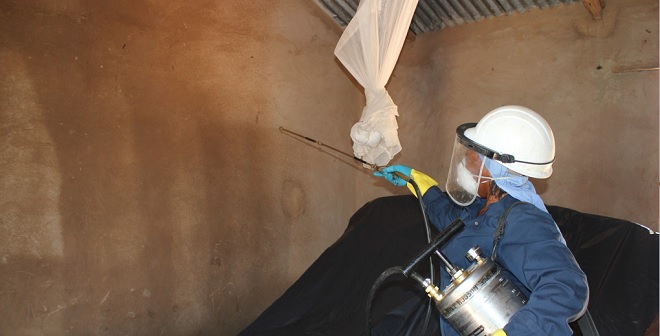
Terego, Uganda | THE INDEPENDENT | Several households in Terego district are opposed to the ongoing Indoor Residual Spraying-IRS program citing various concerns. In November, the Ministry of Health launched IRS against the female anopheles mosquitoes to reduce the high malaria burden in West Nile and Lango sub regions.
The exercise covering Adjumani, Koboko, Arua, Madi Okollo, Maracha, Moyo, Obongi Terego, and Yumbe districts is expected to take 30 days. However, some households in Terego are opposed to the program, saying the chemicals used for IRS can cause impotence in men.
They also allege that the exercise compromises their right to privacy since the sprayers enter their houses. Bassie Ajilong, the Terego Resident District Commissioner says that her office has received numerous complaints from residents opposed to the program claiming that the chemicals have negative impacts.
She has vowed to take stern action against residents and leaders who will dare try to sabotage the program. According to Ajilong, they have so far arrested one person from Katrini sub-county who assaulted one of the workers in an attempt to prevent his house from being sprayed.
Fosca Avijiru, a resident of Kulua village in Ejome parish has blamed the resistance by the locals on IRS for the absence of sensitization about the program. She says that many of the locals get scared when the spray operators arrive in their villages.
“I didn’t know about this exercise. I was only surprised when these people arrived at my home dressed like people who treat ebola. The local leaders need to sensitize us more”, she said.
Meanwhile, Alfred Ariku, another resident says they are opposed to the exercise and have been skeptical about the spraying, which has made many of them boycott the exercise. “We are not sure if these chemicals do not have any side effects on our body or the little food that we have,” he noted.
The Uriama sub county LC3 chairperson, Vincent Okot told Uganda Radio Network that many residents close their doors pretending to be away in the garden just to dodge the spray operators. He blames local council officials for demobilizing the locals to reject the program.
Joel Otukibo, the Ocopi parish councilor notes that there is a need for mass sensitization of the residents and local leaders if the targets for the program are to be realized.
West Nile region has a 23 percent malaria prevalence, which is nearly three times more than the national prevalence that stands at 9 percent. The IRS program is funded by USAID under the Presidential Malaria Initiative and implemented by district and local government.
*****
URN
 The Independent Uganda: You get the Truth we Pay the Price
The Independent Uganda: You get the Truth we Pay the Price





